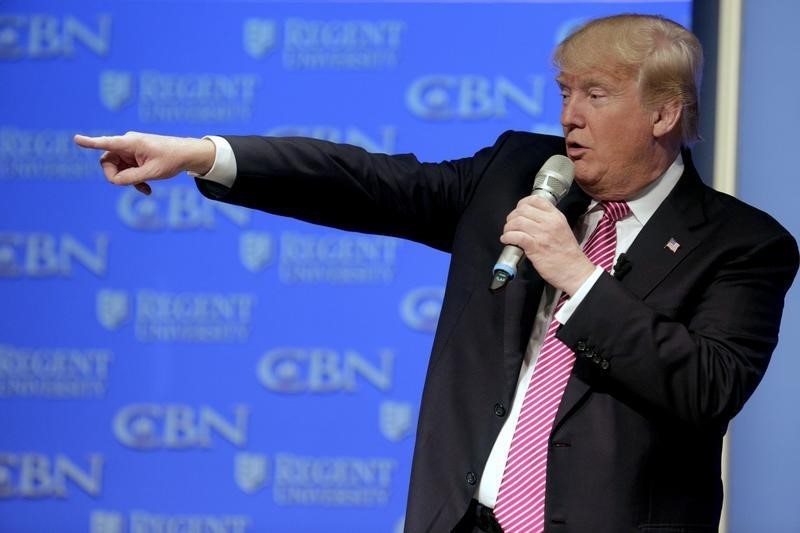A New York jury convicted Donald Trump in the high-profile hush money trial amid his bid to reclaim the presidency in the ongoing race.
After two days of deliberations, the 12-member jury found Trump guilty on all 34 counts, including falsifying documents to cover up a payment to silence a porn star before the 2016 election.
Sentencing is set for July 11, just days before the Republican National Convention on July 15, where Trump is expected to be formally nominated for president.
In the wake of the verdict, analysts at Evercore ISI shared five key factors they will be monitoring to determine how much the jury’s decision impacts the race.
1) ‘Does Trump get a prison sentence?:’ Following the verdict, Trump was released on his own recognizance, with sentencing set for July 11, just before the Republican convention. He faces up to four years in prison, though penalties could be limited to fines, restitution, and probation, Evercore analysts highlighted. His behavior during the trial may negatively impact his sentencing, as such conduct often leads to harsher punishments.
“Given the appeals processes, there isn’t any real chance that President Trump will start any version of a sentence before November,” Evercore wrote. “However, if the Judge does sentence him to jail, that alone will elicit a particularly strong reaction from the Republican base.”
2) ‘Which base gets more motivation from the verdict overall?:’ According to Evercore, Yesterday’s verdict is expected to energize both political bases, with each side raising significant funds post-announcement.
Democrats, who were unlikely to vote for Trump, may now be more motivated to support Biden to prevent Trump's reelection. Meanwhile, Republicans could become even more outraged, viewing the trial as unfair persecution of their candidate, further solidifying their support.
“Overall, Biden is the candidate that is more in need of base motivation right now, as his coalition has been fracturing in recent polls due to the war in the Middle East, inflation, and general concern about the direction of the country. So even if Republicans respond with more fervor, Biden probably benefits more from the help,” the analysts continued.
3) ‘How do “disengaged voters” respond?:’ Recent data shows Trump’s lead is partly driven by "disengaged voters," those who don't closely follow politics or didn't vote in 2020.
Yesterday’s historic verdict is likely to catch their attention, Evercore notes, but predicting their response is challenging. If the reactions from Democratic and Republican bases cancel each other out, the impact will heavily depend on how this group of voters processes the new developments.
4) ‘What are the polls going to do – not next week – but next month?:’ Evercore’s team said the news of the verdict delivered somewhat of a shock, adding that the headlines over the weekend will likely be dramatic, with unending speculation on cable news.
“In that regard, it is probably helpful to Biden in the sense that it changes the narrative from his sagging poll numbers. However, it’s not the instant reactions or headlines that matter – it’s about how these fold into a larger narrative that is developing in this race,” analysts said.
5) ‘What happens next in the other cases?:’ The New York case has always been the only one we expected to be fully tried before the election, Evercore’s analysts noted, however, other key legal moments are anticipated in the coming weeks.
“We are still waiting to hear from the Supreme Court on whether the January 6th Federal trial can proceed given the Presidential immunity claims,” they said. “We don’t expect much near-term significant action in Georgia or in the classified documents case in Florida.”
Still, it is important to mention that President Biden’s son, Hunter Biden, also faces a trial starting June 3, potentially distracting the Biden campaign. Some may argue that Hunter's legal issues make all these trials a wash, continued Evercore.
